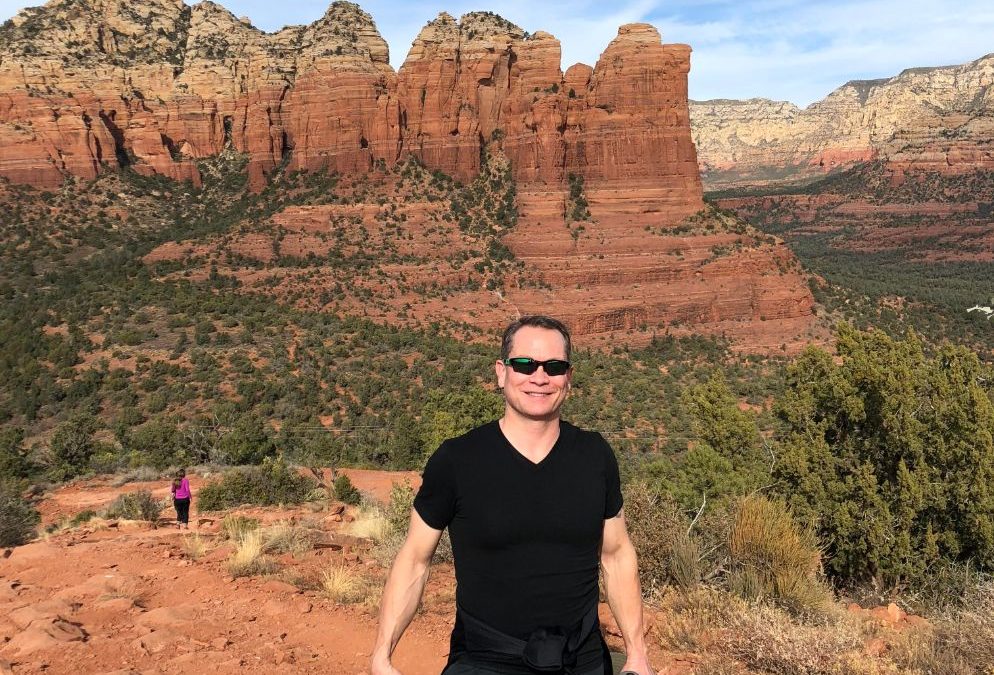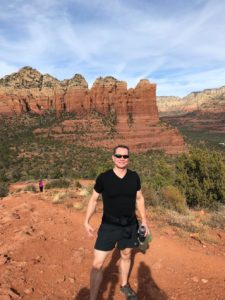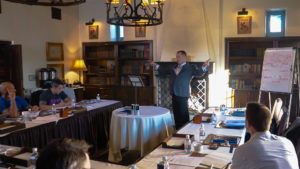Prologue
The first time I shared the following, in its entirety, was from a stage at a leadership conference during my time as a corporate executive. Attendees included various levels of leadership: peers, two reporting-levels higher, and two reporting-levels below. Some close friends knew bits and pieces of this story, but not the details, context, and outcome. Here was how I told the most formative experience of my life.
The Story
In September of 1989, I was in my third year at ASU, had been accepted into the professional program in the School of Architecture and Environmental Design, and had a serious girlfriend with whom I was discussing marriage & children. On the surface an idyllic situation for a 20-year-old on all fronts. But the reality was that I was a closeted gay man in major that was more Dad’s dream than mine was about to come to a head.
Though I was working with a therapist at the time, I was holding back the most intense internal struggle of my orientation. All the “role-models” that I saw of gay men were usually foppish, empty-headed, melodramatic caricatures that were invariably the butt-end of tasteless jokes. I could not square that experience with who I thought I was or wanted to be. In a moment of intense loneliness, having waited until my roommate left for the gym, I made an attempt on my own life. Though I’d taken more than enough opioids to do the job, the universe had other ideas. My roommate got to the gym, realized he’d forgotten his lock, and returned to find me in time.
That was hardly the end of the struggle; rather it was the beginning. Feeling overwhelmed and ashamed and not yet ready to share my truth, I deflected all questions from family and friends.
I needed to withdraw from school for the semester and ‘get my head on straight’ as my Dad would say (not getting his own pun until many years later). The process for a withdrawal in order to preserve my standing and retain the ability to use the tuition for a future semester, I needed the signature of the Dean of the College. I scheduled an appointment with the College Secretary to see the Dean.
It was typical, even with a small College where the Dean knew most of the students, for the busy-ness of the day to give air-cover for penetrating questions. I was counting on it. I arrived at the office, checked-in, and was told the Dean had been called away on urgent business, but the Associate Dean, Reed Kroloff, would meet me. Dread filled the pit of my stomach because Professor Kroloff was well-known to me having taken his classes and interacted with him on more than one occasion. I was about to come head-first into the familiarity I was desperately looking to avoid. The expectation that I would get the needed signature in the reception area was dashed as Reed popped his head out of his office and said, “Ken! Come on in and have a seat. Let’s talk”.
As an adult, I realize that the trauma I thought I was bearing in secret was being told by the sadness in my eyes and the dark circles under them. Reed saw it, asked about me, asked what he could do to help, asked about my support network; all while I stared at the withdrawal slip in front of him – using every bit of my Jedi mind-trick to get him to sign it – to no avail.
Reed paused for what felt like five minutes – likely no more than thirty seconds. Then he said, “I too had issues when I was younger. I needed to figure some things out for myself and I struggled for a while until I did.” He continued saying, “I don’t know that you have the same struggle. I am gay and needed to accept that about myself. I had to realize and learn that it was who I am – not something I chose, rather the choice was whether to accept or deny.”
My tears came fast as I blurted out, “That’s my issue, too”! In that moment, sharing for the first time out-loud the horrible secret I had harbored in shame, it felt like a thousand pounds coming up off my shoulders.
Reed added that in his current life, he had a partner, they had a life, they wanted for nothing albeit they were always cautious about PDA (it was 1989 after all).
I walked out of his office that day with three things: a signed withdrawal slip, a role model, and the most profound lesson in leading I would ever experience.
Epilogue
That interaction helped form my belief system that role-models are critical. Until that moment I didn’t know it was possible to be gay, happy, professional, intelligent, and polished. Reed’s willingness to be his ‘whole self’ at work – thirty years before it was in vogue to do so – quite literally saved my life. When I walked into his office I was not out of the woods; when I left, I was certain I had a place in this world.
The leadership lesson was his willingness to be completely present for me. All I wanted was a signature, so it would have been the most natural thing in the world to come out to reception, say hello, sign, and say goodbye. But he was all-in. As a professor of Architecture and Associate Dean, he recognized that the ‘business’ of education was nothing without the ‘client’ (student). Reed Kroloff cared deeply for us as people – something many write about in current leadership tomes as cutting edge. It was then, for him, second nature.
That experience seared into every fiber of my being that the greatest contribution we each make every day is to be fully ourselves, fully present, and intensely focused on those in our care as leaders. Tough times are when our true colors always show up. We cannot always know the impact we have on others, what struggles they are burdened with or what demons may haunt them. What we can do is be all-in. We can care about others, show compassion, and serve others with the one thing that matters: our undivided attention. Read more about me on my about page or contact me.




